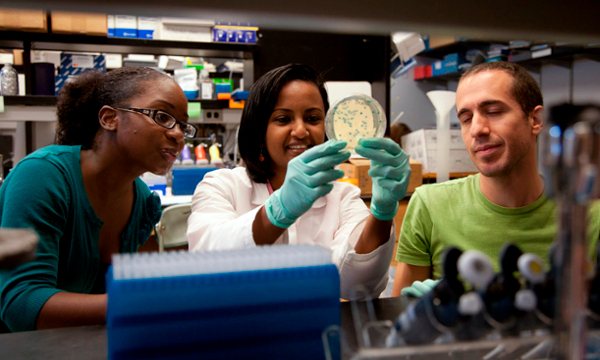Program Organization
The program offers a PhD degree in Microbiology and Molecular Genetics through the Graduate Division of Biological and Biomedical Sciences of the James T. Laney Graduate School of Arts and Sciences.
The MMG program is headed by a Program Director. The Director is responsible for the overall administration of the program and will assure student performance to the University in the conferring of degrees achieved within the program. The Director will serve with the assistance of an Executive Committee.
The Director of Graduate Studies (DGS) serves as an advisor for the pre-doctoral students, in addition to their individual advisors and serves on all Qualifying Exam committees. The DGS is the primary source for students in the program.
The Seminar Director is responsible for organizing the Fall and Spring Seminar Series (MMG 570r/790r) that take place on Mondays at 3:45 pm in the Whitehead Auditorium. The Seminar Director seeks to invite seminar speakers who are interested in speaking about their research and various topics in virology and bacteriology.
The Recruiters are responsible for the screening of application materials. They evaluate applicants primarily on research experience, educational background, Graduate Record Examination (GRE) scores and letters of recommendation. This program is designed only for students seeking to obtain a PhD degree.
The Executive Committee of the MMG program is composed of the Director, Director of Graduate Studies (DGS), Program Recruiter, a graduate student representative and three to four additional faculty members who will rotate among participating faculty. The student representative will serve as a student liaison to relay program issues to the GDBBS Director and the Director of Student Development.
The Executive Committee:
- Evaluates the credentials of prospective trainees and decides on offers of positions.
- Makes recommendations to the Director regarding the operation of the program and the development of policies within the program
- Makes recommendations to the Director concerning the curriculum of the program, including the development of new courses for the program.
The Executive Committee will meet as often as necessary to handle programmatic issues.
The Program Administrator is the point of contact to assist all faculty and students within the program.





